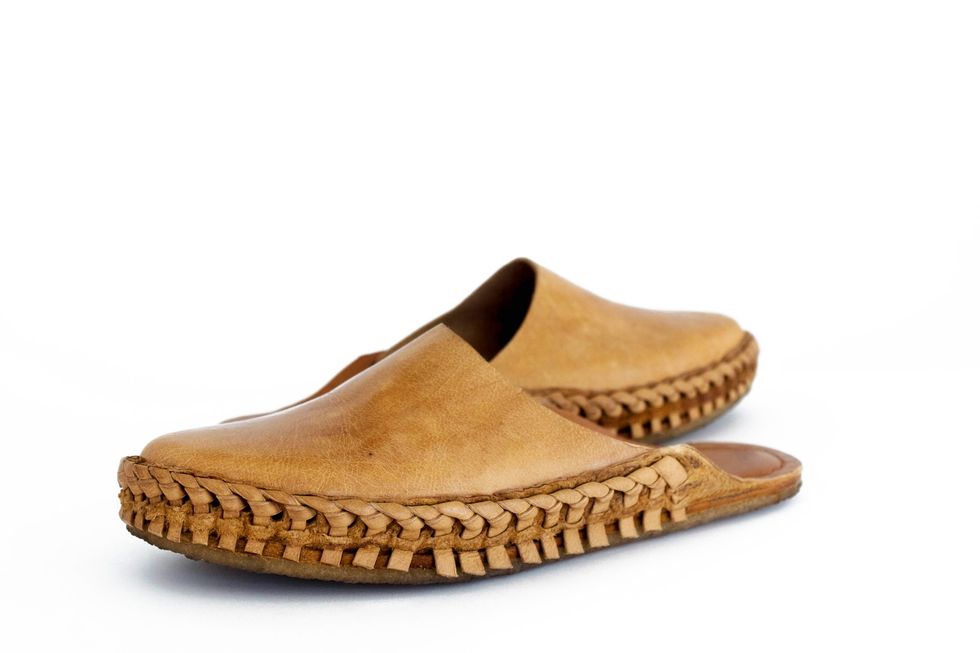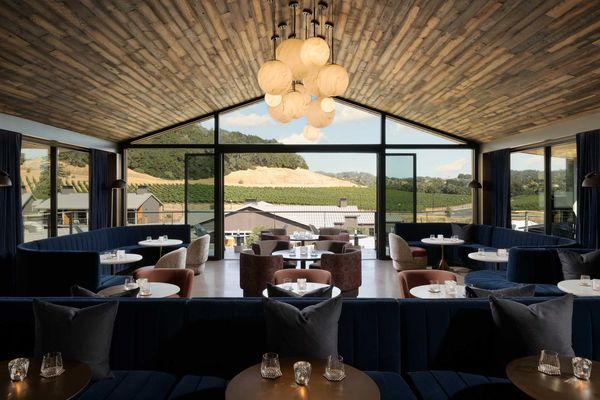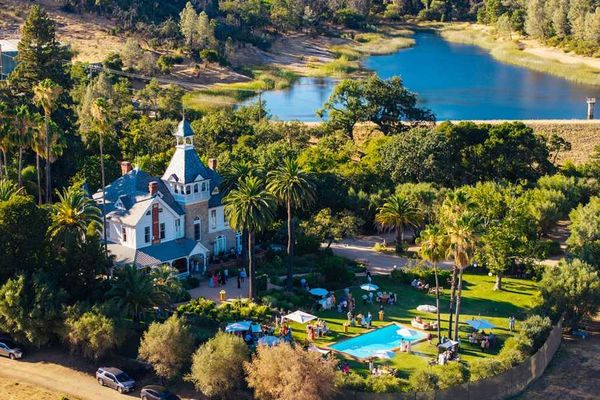When social entrepreneur Michael Paratore quit a career in corporate law to pursue Mohinders, his Mill Valley-based shoe company that sources woven-leather footwear directly from artisans in Karnataka, India, he didn't quite know what he was getting into.
"I wasn't brainstorming ideas for new businesses or social ventures at the time," the Cal grad recounts of that first trip to India in 2012. "I picked up a beautiful pair of sandals from a street vendor in Mumbai and became obsessed with finding the artisans who made them."
The adventure took Paratore from Mumbai to Kolhapur, a city famous for its namesake handmade leather shoes (Kolhapuri Chappals), to the village of Karnataka, where he saw artisans, who were members of a successful nonprofit cooperative comprising 170 families, handweaving the shoes. Crafted from vegetable-tanned water buffalo leather hides—an ancient process using acacia bark and myrobalan nuts—according to techniques passed down through generations, the shoes come in three styles (slippers, slides and flats) for both men and women. "I'll dress them up for a business meeting or even a formal event when my wife permits it, or I'll dress them down as an alternative to flip flops," says Paratore. "I'm frequently stopped by strangers who compliment them and want to learn more about them, leading to new connections and even friendships."
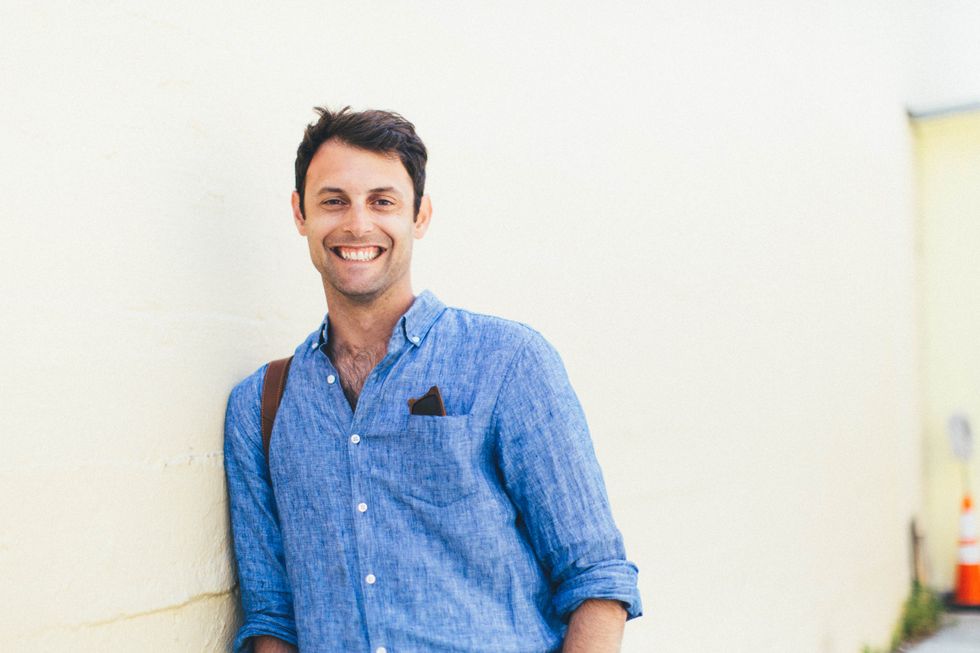
Below, Paratore chats with 7x7 about his company's social mission, the challenges of building supply chain transparency and Mohinder's latest styles.
Why is sustainability central to your business model?
Since I was fixated on a shoe that was born and produced by artisans in India, it was clear to me that the right thing to do was to keep the production in their hands, enlist them as the supplier, and pay them fairly for their work.
Are the animals specifically raised for their hide?
What I've learned during my time in India is that the water buffalo hides come from work animals that die of natural causes. I'm headed to India this January and one of my goals for my trip is to build traceability for our water buffalo hides.
Why is building traceability important?
To us, traceability means having a relationship with, and trusting, the suppliers for every component of our products – from the colorful fabric lining of our shoe bags (printed in India) to the letterpressed hang tags (printed by a local business in San Francisco). That trust is built by relationships formed in person and maintained by countless hours on Skype and regular trips to India or frequent afternoons spent in San Francisco. We also take traceability a step further beyond our suppliers to the raw materials they use. This includes the materials found in every pair of Mohinders: water buffalo-leather upper, goat-leather lining and crepe rubber sole. While we are confident each of these components are produced using environmentally friendly methods under ethical working conditions. We are working to instill auditing for these materials.
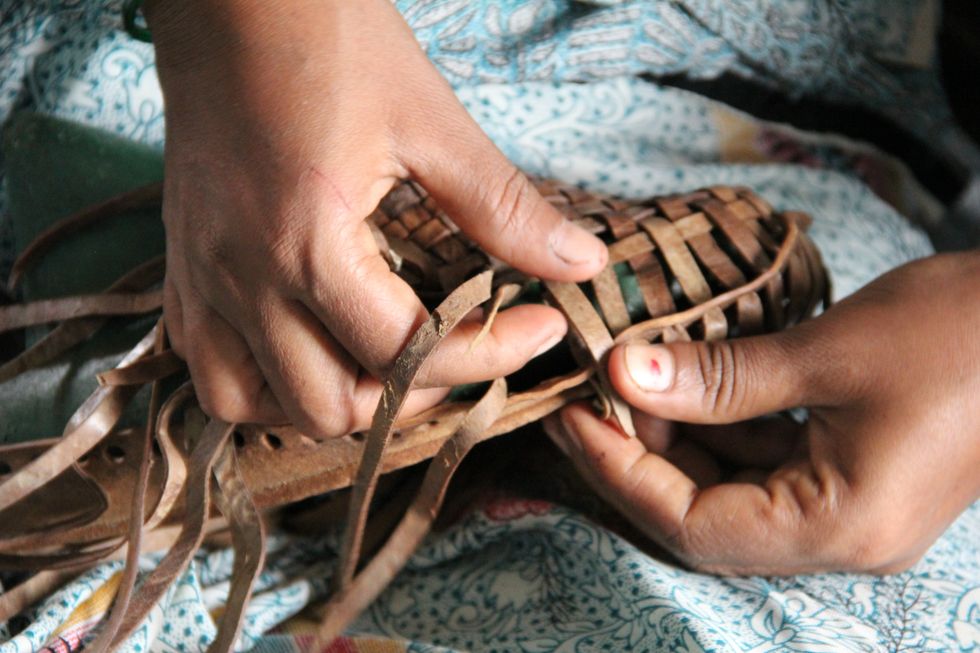
Since the shoes are still produced in the artisans' homes, how do you foresee scaling sustainably?
Given our commitment to keep production with the artisans, we can't "scale" the business in its current form to the point that we could meet infinite demand for our products. That said, there are certain things we can and intend to do, such as train additional people in the village, which will take time but will eventually increase our annual capacity.
What's one of the most rewarding aspects of running a sustainable company?
The most rewarding part is getting to make decisions based on what sounds fun and exciting to me, and, by doing that, also support artisans financially and help to preserve a craft that has been passed down through many generations. Given that I have not taken any outside fundraising, I'm able to guide decisions based on what motivates me and serves the artisans rather than maximizing profit in the short-term.
The most challenging aspect is working with a manufacturing partner who speaks a different language and is so far away geographically. I do understand why other companies get inspired by a product that is made abroad and then decide to manufacture it closer to home. However, despite the challenges of working with artisans in India, I don't regret it one bit.
And what's next?
We just launched our newest style called the City Slipper Solid this week! It's a slide featuring an upper made from a single piece of solid leather that beautifully highlights our vegetable-tanned buffalo leather—a unique material we're proud to use. // $145-$165, Available at The Perish Trust, 728 Divisadero St. (Nopa), theperishtrust.com and online at mohinders.com
